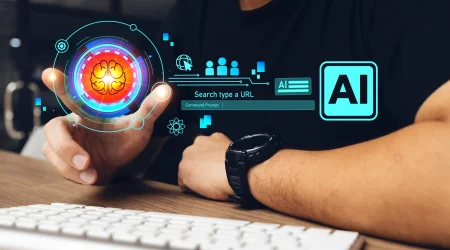Search has evolved dramatically in the last decade. Gone are the days when users typed stiff, robotic keywords into Google. Today, people search the way they talk — asking questions, describing problems, and expecting clear answers instantly.
This shift isn’t just about user behavior. It’s powered by AI.
Search engines now use artificial intelligence to understand meaning, intent, emotion, context, and even follow-up questions. If your SEO strategy doesn’t align with how AI interprets search intent today, you’re already behind.
Let’s break down how AI shapes modern search intent — and how you can use it to your advantage.
Understanding AI’s Role in Deciphering Search Intent
The Shift From Keywords to Conversational Search
Instead of “best laptop 2025,” users now ask:
- “What’s the best laptop for video editing this year?”
- “Which laptop lasts the longest for travel?”
- “Do I need a gaming laptop for work?”
AI understands these natural-language queries, detects intent, and delivers results that feel personalized — even if you didn’t use the exact keyword.
How AI Technologies Interpret Human Queries
Thanks to machine learning, natural language processing (NLP), and semantic search, search engines can now:
- Understand context instead of reading words literally
- Predict what users want to know next
- Identify emotion or urgency behind a query
- Cross-reference past searches to improve results
This is why SEO in 2025 isn’t just about ranking for keywords — it’s about aligning with how AI thinks.
The Different Types of Search Intent AI Must Recognize
AI must categorize every search query into one of four key intent types:
| Search Intent Type | Description | Example Queries |
| Informational Intent | The user wants knowledge or answers to a question. | “How does solar energy work?” “What is parasite SEO?” |
| Navigational Intent | The user wants to reach a specific website or page. | “Facebook login” “Absolute Websites pricing page” |
| Transactional Intent | The user is ready to take action—purchase, sign up, or book. | “Buy noise-canceling headphones” “Book a spa appointment near me” |
| Commercial Investigation | The user is researching or comparing options before making a purchase. | “Best accounting software for small businesses” “Shopify vs WooCommerce review” |
When AI correctly identifies intent, your content gets placed in front of the right audience — but only if your SEO supports it.
SEO Strategies for Search Intent
Tailor Content Based on Searcher Expectations
Every piece of content should meet the searcher where they are — whether curious, comparing options, or ready to buy.
Integrate Conversational Queries Into Your SEO Strategy
Think less like a keyword machine and more like a human answering questions.
Use AI Tools to Predict Trends
Platforms like Surfer, SEMrush, and Ahrefs are now AI-enhanced to help you spot emerging queries and user intent patterns faster.
Leveraging AI for Keyword Research and Content Optimization
Using AI to Uncover High-Impact Keywords
AI groups related queries into clusters so you can build content hubs instead of single keyword articles.
Enhancing Content Relevance and Readability
Tools like Grammarly, Jasper, or ChatGPT help refine clarity, tone, and structure — making your content more digestible.
AI-Driven On-Page SEO Optimization
AI suggests internal links, adjusts your headings, and ensures your content matches user intent.
Predictive Analytics for Content Trends
AI forecasts what users will search next so your content appears before the trend peaks.
Improving Site Performance and User Experience With AI
AI Solutions for Faster Loading Speeds
AI can automatically compress images, detect heavy scripts, and optimize page load times.
Personalizing User Experiences With AI Analytics
From recommended content to dynamic website sections — personalization increases conversions.
AI Chatbots for Better User Engagement
AI-powered chatbots provide instant answers, making your website feel alive and helpful 24/7.
AI for Internal Linking Strategies
Smarter linking improves ranking, boosts session duration, and guides users toward conversions.
Measuring the Success of Your AI SEO Strategy
Key KPIs to Track
- Organic traffic growth
- Search intent match rate
- CTR on conversational queries
- Engagement metrics
- Conversion intent signals
AI Tools for Real-Time Analytics
Modern analytics platforms give deeper insights than ever before — often predicting user behavior in advance.
Adapting Your Strategy Using AI Insights
The real power of AI is not the data — but what you do with it.
FAQs:
Can AI improve understanding of conversational queries?
Absolutely — it’s the foundation of modern search.
How can marketers adapt to AI-driven search intent?
By aligning content with user questions, not just keywords.
Are there AI tools for search intent optimization?
Yes — many platforms now offer intent detection, clustering, and AI-powered SERP analysis.
Conclusion
AI isn’t replacing SEO — it’s enhancing it. The businesses that understand how AI interprets intent will outperform those still clinging to outdated keyword-only strategies. SEO today is dynamic, conversational, and powered by intelligence.
If you want your website to rank higher, attract better-quality leads, and keep up with how AI understands search intent, Absolute Websites is here to help.
Book a strategy session today — and let’s make your website ready.










